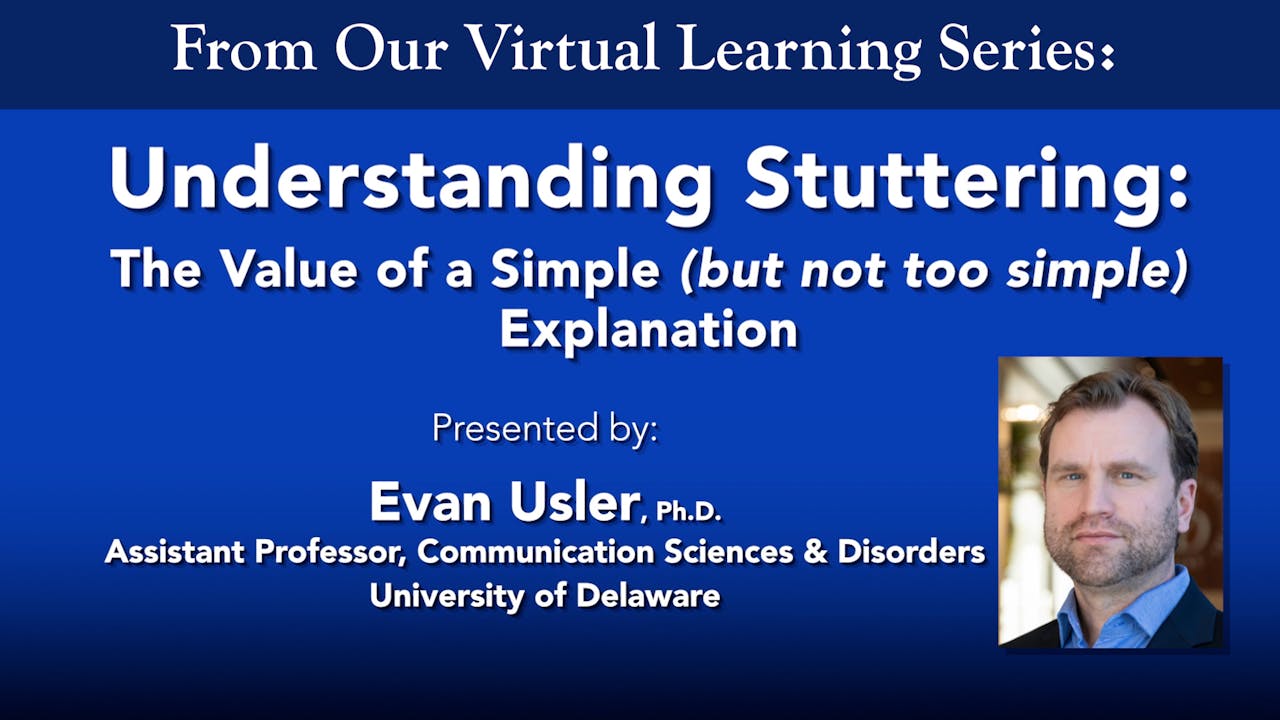Understanding Stuttering
Developmental stuttering has been long known as a great mystery. Stuttering behaviors differ with considerable variability in manner, frequency, and intensity. Stuttering is often paradoxical in its signs and symptomology—often removing a sense of agency from not only the speaker, but the clinicians and caregivers who seek to help. Furthermore, recent research findings into the neurobiological complexities of the disorder (although exciting) may make us feel ever more confused as we descend down the rabbit hole of stuttering etiology. How do we make sense of stuttering? The good news is we know much more about stuttering than many assume.
This session will explore the theoretical and clinical value of a simple (but not too simple) explanation of stuttering. It is hoped that this session will empower participants to deduce their own simple, yet evidence-based, explanations targeted to specific audiences, including people who stutter and their families.
Target Audience: Speech-Language Pathologists, Researchers, Graduate Students
Bio: Evan Usler, Ph.D., is an assistant professor in Communication Sciences and Disorders at the University of Delaware. He previously received his Ph.D. from Purdue University in Cognitive Neuroscience. He specializes in understanding the neural correlates of communicative fluency and stuttering. Although he does not identify as someone who stutters, he stutters all the time and is pretty good at it.
-
TSF-VL_Usler_Understanding Stuttering_v2

